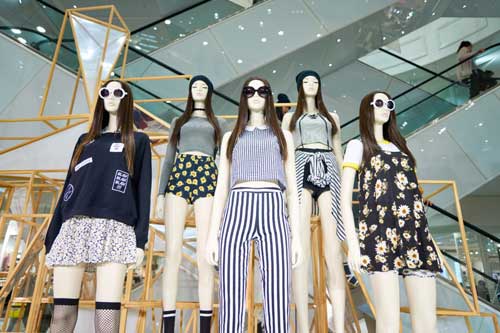"While consumers and retailers alike are vouching for the benefits of going green, the real picture is quite different. People are still lured to fast fashion and discard clothes faster than ever before. Why has there been a stark conflict between mindset and interest? Scientists say shopping makes people feel good enough to ignore ethics, and it’s hard to turn down a good deal. The pleasure areas of the brain light up when consumers are pursuing something they want, and once they have invested time"

While consumers and retailers alike are vouching for the benefits of going green, the real picture is quite different. People are still lured to fast fashion and discard clothes faster than ever before. Why has there been a stark conflict between mindset and interest? Scientists say shopping makes people feel good enough to ignore ethics, and it’s hard to turn down a good deal. The pleasure areas of the brain light up when consumers are pursuing something they want, and once they have invested time, energy and money, sunk cost bias makes it hard to let go of the item they have grown attached to during the search.

Scientific studies suggest fast fashion plays into consumers’ neurological pathways by giving them not only pleasure from the act of looking for clothes but also the pleasure of getting a good bargain. A University of Michigan study found the price of an item or how much a person liked it didn’t alone explain the amount of pleasure experienced during shopping. It was how much the person liked it and what he or she paid for it. So when a shopper finds a top at Zara that fits well, sees that it only costs $19.99, and remembers the news story of a Zara customer finding a note from an unpaid factory worker sewed into the clothes, he or she faces a decision: Do I buy this shirt from a questionably responsible company, or do I keep looking for an option that matches my values?
Even though consumers must be sustainability oriented, it is this attitude that takes too much effort to change how they shop and to find another option that matches their budget, style and body type. In this continued doldrum, they tend to ignore or forget about the instances of human rights violations and carry on with their lives. Additionally, consumers also tend not to feel pressure to change their behavior if it is culturally appropriate. If their peers are paying for ethically sourced clothes, they are more likely to do the same. If they’re not, then the other party is also unlikely to change behaviour, because the risk of not changing is minimal. This suggests that until the majority of people pay a premium for ethically sourced clothing, most people will not change how they shop.
Riding the sustainability train
To lure consumers with ethical clothing, brands need to tell better stories during the shopping experience. The group Fashion Revolution ran a social experiment to test the effect of information at the point of purchase of cheap, unethically made clothes. They installed a vending machine that sold T-shirts for €2. Before the T-shirt was dispensed, the customers learned how that low-price point came to be: Garment workers in developing countries spent up to 16 hours a day in the factory and earned as little as 13 cents per hour. After receiving this information, the customers could opt to continue with the purchase or donate the 2 euros. Nobody in the experiment followed through with the purchase. Honest but emotional information presented at the point of purchase could influence consumer behaviour.
Companies could create more conscious shoppers if they educate them about what to ask for specifically. On average, prices need to increase by 1 to 3 per cent on individual garments to provide a living wage and safer working conditions, and consumers can pressure their favourite brands to make those changes. Consumers who want businesses to act responsibly need to communicate their expectations to their favorite brands. Brands can better tell stories that support consumers’ willingness to pay fair prices for goods. A little nudging both ways will help build a more sustainable fashion system that doesn’t degrade our environment and upholds everyone in it, from garment worker to consumer.












